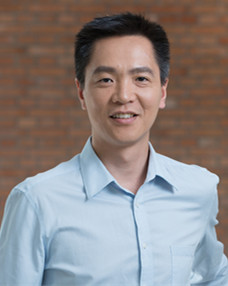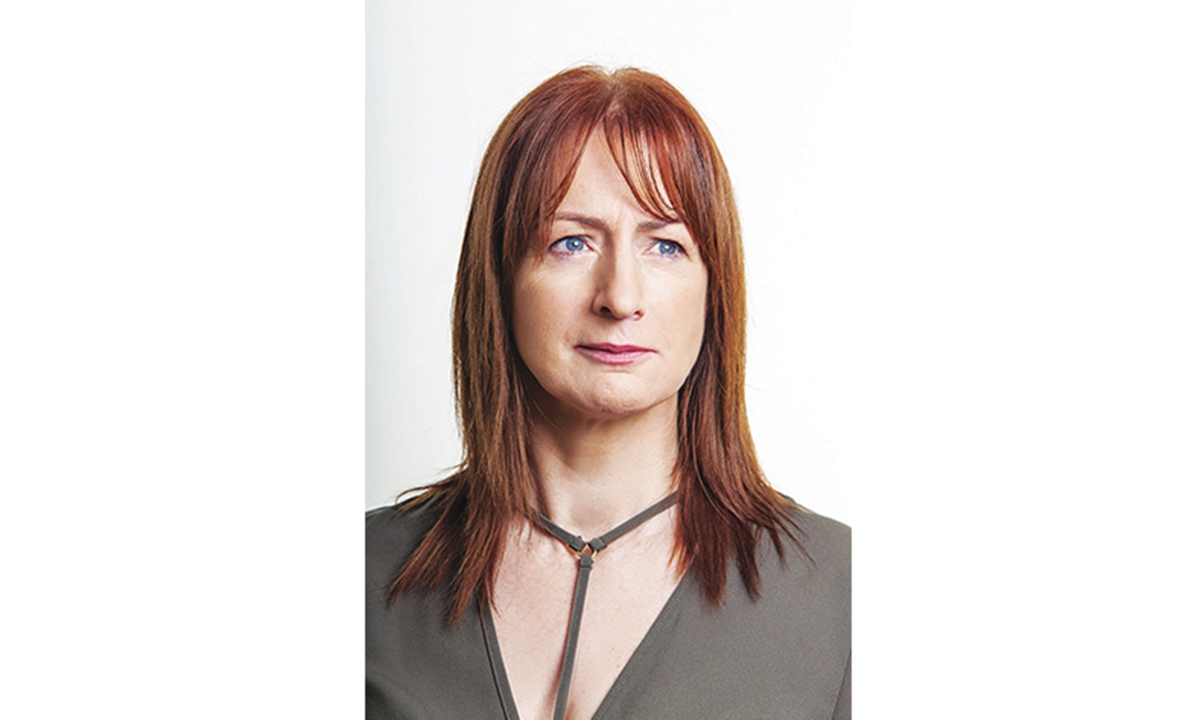Prof Zilfalil heads the Malaysian Node of the Human Variome Project and is also Unesco Chair in Human Genetics on Thalassaemia, a programme that involves over 850 institutions across 117 countries.
Related posts:
Prof Zilfalil heads the Malaysian Node of the Human Variome Project and is also Unesco Chair in Human Genetics on Thalassaemia, a programme that involves over 850 institutions across 117 countries.
Related posts:


https://www.med.tsinghua.edu.cn/en/info/1352/1446.htm
Did you know that China is doing stem cell experiments in space? Get to know more about China's space explorations in this episode.
Guest: Prof Dr Kee Keh Kooi (Scientist, Tsinghua University)
To watch the full interview with Dr Kee, follow @realchuwai on Facebook and YouTube.
More people are falling sick and seeking treatment at hospitals as the Air Pollutant Index readings seem to be going up in parts of the country. With the hazy and dry conditions, and Covid-19 still a concern, health experts are advising people to wear face masks when they are outdoors.
The website also forecast that the AQI in Kuala Lumpur on Friday (April 21) and Saturday (April 22), when Hari Raya Aidilfitri is expected, would be moderate, with readings of 80 or higher.
Related stories:

It’s getting harder to breathe (Poll Inside)
Hazy days – preparing for the worst, hoping for the best
Mask up against Covid-19 and haze, says exco man
Related posts:


Better safe than sorry: people who had not completed their vaccination, either with a booster or prime vaccinations, should be masked when in public, say health experts.
“In general, we have to be more cautious. As such, people are encouraged to mask up in public, be mindful of hand hygiene and cough etiquette,” she said.
Related News
Related posts:

Update Online petition for Fort Detrick probe draws 20m signatures; China urges US to open UNC lab, disclose military games patients...
Clare Daly, a member of the European Parliament from Ireland, sat down with CGTN reporter Li Jingjing in Beijing on April 2 to discuss the current challenges Europe is facing and the importance of developing deeper and more stable ties with China. Daly believes most politicians in the EU understand the interconnectedness of relations with China and the necessity of it for the economy. Despite this, anti-China rhetoric is still on the rise as Europe finds itself under immense pressure from the United States.
 |
Editor's Note: A flurry of trips by European leaders to China are taking place. It is in line with the interests of European citizens, and reflects a genuine and welcome effort on behalf of China to try and develop international relations, Clare Daly (Daly), an Irish politician and member of the European Parliament, told Global Times (GT) reporters Li Aixin and Wang Zixuan in an interview before wrapping up her China visit. GT: During your China visit, there have been some European leaders coming to China or planning to visit China. What signal do you think it conveys? Daly: We found it very interesting that everybody is coming to China. Brazilian President Lula is coming soon also. Everybody is beating at the door here. I think what it reflects is a very genuine and welcome effort on behalf of China to try and develop international relations. To be honest, the relations between the EU and China have not been good. We have noticed, in the period of time since we have been in the European Parliament, hostility and anti-Chinese rhetoric creeping into the debates. That's not in the EU's interest. It doesn't make any sense. We have tried to understand where it comes from. The only conclusion we can come to is that China is a "threat" to US economic interests, not security interests. In desperation, they [the US] are trying to drag the EU with them into their camp. But we don't think anybody should have camps.
China is a hugely important world economy. It's in the interests of the EU to have good relations with China. From what we've seen, [French] President Macron has improved his relations with China. The comments before European Commission President Ursula von der Leyen came were rude, undiplomatic, arrogant and beyond what the EU should be doing. It was quite disgraceful diplomatically. But this is what we have come to expect from the EU.

;
Germany's Foreign Minister Annalena Baerbock began her three-day visit in North China's Tianjin on Thursday, as Europe is having a major debate in recent days on how to deal with China, after French President Emmanuel Macron's call for Europe to reduce its reliance on the US drew ire from the US while winning support inside Europe.
Europe should be aligning with the countries that form the majority of the world's population, which is outside ...
Macron's actions show us the limits of the US' ability to rope in Europe in containing China, and ...
Rational voices in EU on China are gaining volume in the wake of Macron’s fruitful China trip and ...
It has become a big debate to clarify the foreign strategy when Europe may be strategically lost and ...
| ||
Arrogant She asked Xi not to unilaterally change the stability of Taiwan strait. It will not be TO THE BENEFIT of the West. Xi lectured her: Under ONE CHINA principle, Taiwan ... |
;
The adrenal glands are small triangle-shaped glands located on top of the kidneys. They produce hormones such as cortisol, aldosterone and adrenaline.
These hormones help to regulate essential body functions that include blood pressure, metabolism, salt homeostasis and the body’s response to stress and infections. The release of hormones by the adrenal glands is controlled in part by the hypothalamus and pituitary gland in the brain. The kidneys and the body’s sympathetic nervous system also interact with the adrenal glands. The adrenal glands are composed of two parts: the cortex (outer part) and the medulla (inner part). Each part is responsible for producing different hormones. Cortisol, aldosterone and androgens are produced at the cortex and adrenaline and noradrenaline at the medulla.Cortisol: A glucocorticoid hormone that helps the body to respond to illness and injury. It also helps to maintain normal blood pressure, glucose levels and sleep-wake rhythm.Common symptoms of adrenaline insufficiency.Common symptoms of adrenaline insufficiency.
Cushing syndrome is a condition that is due to excess cortisol. It can be from an outside source for example taking long-term or high doses of steroid medications
More rarely, Cushing syndrome can be due to excess production of the hormone by the body itself such as by an adrenal tumour or growth in the pituitary gland, which stimulates the adrenal glands to make too much hormones.
Common symptoms in children are: > Weight gain, more prominent at the face and belly > Poor growth despite weight gain > Muscle wasting > Increased hair growth over the body. Complications include: > High blood pressure > Diabetes > Prone to infections > Thin, easily bruised skin > Brittle bones, and > Irregular menses in adolescent girls.Diagnosis and testing
Diagnosis of adrenal disorders is based on the history, physical examination and blood test that measure the amount of adrenal hormones in the body. Interpretation of adrenal hormone levels must be correlated with the probable cause and clinical picture. Sometimes additional endocrine (hormone) stimulation tests or imaging of the brain and adrenal glands are needed. Treatment options If the adrenal gland does not make enough hormones, treatment consists of replacing these hormones with medication; e.g. steroid (glucocorticoids) medication is needed to replace cortisol. Some children may also need to take Fludrocortisone medication to replace aldosterone. During acute illness or surgery, the steroid medication needs to be taken in larger amounts. In rare cases where the adrenal gland is producing too much hormones e.g, certain adrenal tumours, medications are given to suppress the hormones or to relieve the symptoms. The underlying cause for the adrenal disorder must also be addressed, e.g. surgical removal of tumours where indicated. The duration of treatment depends on the underlying cause. Medications often need to be taken life-long in genetic causes. In others, such as in adrenal insufficiency due to tapering off of long-term steroid use, treatment is only needed until the adrenal glands “wake up” and begin producing its own hormones again. With treatment, the symptoms of adrenal insufficiency can be controlled enabling children with this condition to live normal lives. However, regular specialist follow-up and blood testing are important for treatment adjustment to ensure proper growth, development and prevention of adrenal crisis.Dr Jeanne Wong Sze Lyn is a consultant paediatrician and paediatric endocrinologist. This is the fourth article in a monthly series called Hormones and Kids. For more information, email starhealth@thestar.com.my. The information provided is for educational purposes only and should not be considered as medical advice. The Star does not give any warranty on accuracy, completeness, functionality, usefulness or other assurances as to the content appearing in this article. The Star disclaims all responsibility for any losses, damage to property or personal injury suffered directly or indirectly from reliance on such information.
Related posts:

